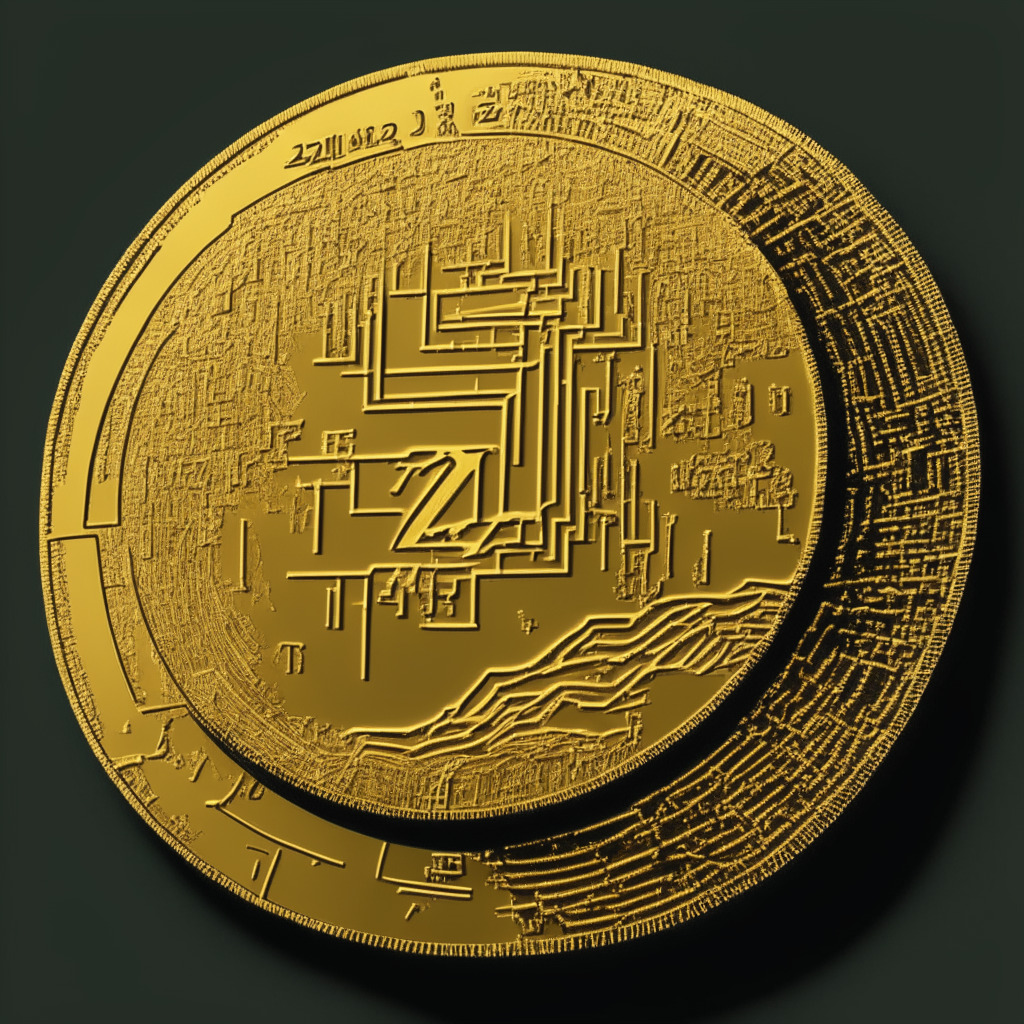A recent case in Morocco involving the use of Bitcoin to purchase a Ferrari highlights the global concern over cryptocurrency regulation and legality. Countries are grappling with establishing a concrete stance on digital assets, leaving individuals at risk and emphasizing the need for comprehensive regulations to foster secure, effective utilization.
Search Results for: Roc Nation
Crypto User’s Harsh Penalty in Morocco: A Call for Global Regulatory Consensus
In Morocco, a crypto user faced an 18-month prison sentence and a $3.7 million fine for purchasing a luxury car with Bitcoin – an illegal act in the country. This case highlights the complexities of cryptocurrency regulations and the legal grey area that poses challenges for crypto users worldwide, emphasizing the need for a unified regulatory framework.
Nigeria’s National Blockchain Policy: Economic Leapfrog or Cryptocurrency Oversight?
Nigeria’s Federal Ministry of Communications and Digital Economy has approved the National Blockchain Policy, emphasizing the country’s interest in digital innovation. This move aims to benefit public and private sectors, reduce reliance on oil and gas, and align with the ‘DIGITAL NIGERIA’ Roadmap for a secure transaction environment. Despite promising outlook, skepticism remains regarding the integration of blockchain technology without significant attention to cryptocurrencies.
International Crypto Crackdown: Money Laundering, Regulation, and Privacy Concerns
A recent international operation involving US law enforcement and Ukraine’s Cyberpolice unit led to the seizure of nine cryptocurrency exchanges suspected of money laundering from ransomware attacks and fraudulent schemes. This development highlights the necessity for global cooperation in combating crypto-related crimes, while emphasizing the importance of maintaining a balance between regulations and freedom, ensuring ethical considerations and data privacy.
Bye Bye Dollar? BRICS Nations Aim to Secure Currency Deal by 2023 amid De-dollarization Efforts
The chairman of the State Duma Committee on the Financial Market, Anatoly Aksakov, has announced […]
The Phygital Revolution: Bridging the Gap Between Fashion, Music, and Blockchain Technology
“Blockchain and digital assets company, Legitimate, has partnered with PUMA and Roc Nation to develop an exclusive sneaker collection that merges music, fashion, and blockchain technology. Their ‘phygital’ approach also incorporates NFC chips to deliver unique content and foster strong bonds between brands and customers.”
The Fall of FTX’s Sam Bankman-Fried: A Cautionary Tale or Web3 Symbol’s Downfall?
Cardano’s Charles Hoskinson compared FTX’s co-founder, Sam Bankman-Fried, to Ponzi scheme operator Bernie Madoff, criticizing his lenient media treatment. Following the FTX crash, allegations of misappropriation of user assets and extravagant purchases surfaced, leading to calls for stringent regulation in the crypto industry.
Courageous Move Saves FTX Cryptocurrency Exchange from Potential Theft Debacle
“In a daring rescue, adviser Kumanan Ramanathan from Alvarez & Marsall helped prevent a major crypto robbery at FTX crypto exchange. Amidst chaos, Ramanathan utilized a Ledger Nano hardware wallet to secure remaining assets, preventing further losses and saving millions in the process.”
Sam Bankman-Fried Trial Potentially Overhauls Crypto Legal Landscape: A Detailed Analysis
The ongoing trial of crypto bigwig Sam Bankman-Fried could significantly shape the cryptocurrency legal landscape. The defense is focusing on minute details, potentially laying groundwork for a later appeal. The case’s outcome may influence future regulations of blockchain-based businesses.
Unwrapping the Saga of Alameda’s USDT Mints & Zimbabwe’s Gold-Backed ZiG Tokens
“Alameda Research has minted over $38 billion in Tether (USDT) tokens in 2021, indicating that the total value of USDT creation surpasses Alameda’s total assets. The inner workings of this process involve benefiting from trade value discrepancies and ensuring USDT’s dollar peg stability. However, this raises ethical concerns for industry watchers.”
A Leap or A Slip? The $1.6 Million CrypToadz NFT Purchase: A Breeding Ground for Wash Trading?
A CrypToadz NFT, normally under $1000, was bought for about $1.6 million, leading to questions about its legitimacy. The indicators point towards potential wash trading, involving a chain of transactions for liquidating dubious funds. This episode underscores the need for vigilance in the evolving cryptocurrency and NFT markets.
Cryptocurrencies in Conflict Resolve: Israeli Cyberspace Crackdown vs. Crypto Aid Israel
The Israeli police cyber unit and Binance tackled Hamas’ attempts to raise funds via cryptocurrency while Crypto Aid Israel, supported by Fireblocks, was established to receive cryptocurrency donations for displaced citizens securely. The growing cooperation could potentially link cryptocurrency assets and traditional banking, crystalizing a hybrid financial future vision.
Crucial Crypto Updates: The Bitcoin Slump, Crypto Aid Israel and The Rise of BitVM
Bitcoin’s value hovers at $27,653 as Robert F. Kennedy Jr, a crypto enthusiast, vies for presidency as an independent, proposing the reinforcement of the US dollar with Bitcoin among other assets. Cryptocurrency organizations, including Fireblocks, offer aid in the midst of the Israel crisis, suggesting possible integration of crypto in traditional finance systems. Robin Linus unveils BitVM, potentially importing Ethereum-level smart contracts to the Bitcoin sphere.
Unexpected Ethereum Supply Surge: Impact on Long-Term Financial Future and Ultrasound Money Vision
“Ethereum grapples with an unexpected supply surge adding $47 million worth of Ether tokens to circulation in 30 days. Lower NFT trades and decreased decentralised finance activity have resulted in fewer ETH coins withdrawn from circulation, exacerbating the supply increase.”
China Daily Ventures into NFT: An Ambitious Leap or A Trepid Path?
“China Daily, a CCP-owned newspaper, intends to launch an NFT platform in collaboration with a third-party blockchain firm. With a fund amounting to 2.813 million yuan, the aim is to foster Chinese civilizational influence through tech including Blockchain, AR/VR, NFTs, cloud computing and big data.”
Bitmain’s Struggle but Hive’s Triumph: A Tale of Two Bitcoin ASIC Companies
Bitcoin ASIC manufacturer Bitmain has paused October salary payouts for its employees due to struggles to achieve net positive cash flow. This decision includes a 50% pay cut and elimination of standard bonuses and incentives. Amid financial troubles, Bitmain’s survival relies on concrete financial recovery strategies.
Digital Asset Market Boom: A Spotlight on Bitcoin, Ethereum, and Solana Amid Regulatory Uncertainty
The digital asset market recently observed a significant increase, with product inflows reaching $78 million, marking the highest rise since July. A surge was also seen in exchange-traded products, growing 37% in a week. Bitcoin experienced a notable boost, while Ethereum’s growth remains slower. Surprisingly, altcoin Solana recorded substantial outflows, yet maintains popularity. Interestingly, a majority of last week’s inflows originated from Europe due to its clearer regulatory framework.
Global Crypto Regulation Changes Loom: Opportunities, Challenges and Stakeholder Reactions
“Finance ministers and central bank governors globally converging under India’s G20 presidency, discussing a roadmap for crypto regulations as part of the New Delhi Declaration. Discussions aim to strengthen crypto assets policy, planning for both the opportunities and challenges they present.”
Blockchain’s Future: How Backed Finance Tokenizing Government Bonds Challenges the Status Quo
“Backed Finance has launched the world’s first tokenized government bond on the Base network, marked as blB01. This innovative move provides investors with a way to monitor the value of the asset without direct exposure. However, due to unclear regulations, it remains inaccessible to U.S. investors.”
The Dance of Regulations and Crypto: Boon or Bane to the Blockchain Future?
The former CEO of Voyager Digital, now under regulatory scrutiny for allegedly violating U.S. derivatives regulations, views these allegations as retrospective application of rules. This comes after Voyager’s bankruptcy and amid investigations into its unfair marketing practices. Regulations, while possibly seen as constraints, can provide stability and customer protection in the crypto market.
The Intricate Web of Illicit Fentanyl Trade Powered by Cryptocurrency
The U.S Treasury’s Office of Foreign Assets Control (OFAC) has targeted several cryptocurrency wallets involved in the illicit trade of fentanyl. Most transactions were conducted via Stablecoins on Ethereum and Tron networks. These wallets, save for one, were hosted on a centralized crypto exchange, allowing the illicit flow of hundreds of thousands of dollars worth of cryptocurrency.
Bitcoin’s Market Momentum: Bold Forecasts, El Salvador’s Mining Move and the Potential of ETFs
“Former BitMEX CEO foresees Bitcoin’s price surging to approximately $70,000 in 2024, propelled by potential financial disruptions and an anticipated Bitcoin halving event. Meanwhile, El Salvador launches its maiden sustainable Bitcoin mining pool, and BlackRock nears approval of a Bitcoin ETF – potentially triggering a $650 billion surge in crypto asset management.”
FTX CEO’s Legal Consequences: Private Jets as Collateral Damage in Crypto Accountability Saga
This excerpt provides an overview of the legal backlash faced by FTX’s CEO, Sam Bankman-Fried (SBF). Accused of using customer deposits for high-risk speculative investments, SBF is now at risk of losing his $28.5 million private jets amidst a trial that could end in a prison sentence. This case underlines the critical need for greater regulation and accountability in the crypto industry.
South Korea’s Central Bank Tests Ground for Potential Wholesale CBDC Implementation: Progress or Peril?
South Korea’s central bank is collaborating with the Bank for International Settlements for a test run on wholesale central bank digital currencies (CBDCs) seeking to assess the feasibility of setting South Korea’s future monetary framework based on CBDCs. The test project focuses on the CBDC’s efficiency as a settlement asset and its programmability potential.
Kraken’s Acquisition of Dutch Crypto Exchange: A Strategic Masterstroke or a Risky Gamble?
“The US-based exchange Kraken plans to acquire Dutch cryptocurrency exchange Coin Meester B.V. (BCM), aiming for European expansion and leveraging the EU’s MiCA regulatory framework. This ambitious move, though promising high cryptocurrency adoption, may lead to greater regulatory scrutiny and operational complexities.”
Argentina’s Path to Economic Stability: Central Bank Digital Currency or Cryptocurrency Adoption?
Argentina’s Central Bank is endorsing a proposal for a Central Bank Digital Currency, referred to as the ‘digital peso’, as a solution to escalating inflation. Through blockchain technology, the use of this digital currency would offer operational traceability and potentially broaden the tax base without heightening tax rates.
Fallout of 3AC Arrests: Cryptocurrency’s Volatility and Security Concerns Revisited
“The collapse of Three Arrows Capital (3AC), following the arrest of co-founder Su Zhu, mirrors the volatility and insecurity in crypto investments. This occurrence emphasizes the industry’s need for enhanced regulatory safeguards and due diligence to protect investors.”
Escalating Crypto Frauds vs. Implementation of Digital Currencies: A Tale of Contrasts
“The exploiter’s actions raise alarms for cryptocurrency security, while concurrently Argentina considers adopting digital currencies to stabilize national economies. This double-edged nature of the crypto-economy showcases security threats and promising solutions coexisting in the volatile yet dynamic world of cryptocurrency.”
Argentina’s Economic Reformation: The Pros and Cons of Central Bank Digital Currency Adoption
Argentina’s economic committee is exploring the integration of Central Bank Digital Currencies (CBDCs) as a solution to the country’s economic problems. The digital peso can provide transparency, improve taxation and potentially bring stability to the economy. CBDC’s potential to reform the financial ecosystem is currently a major topic of discourse.
Unwrapping the Mystery: The Power and Pitfalls of Wrapped Tokens in Blockchain
‘Wrapped’ crypto tokens are cryptocurrencies linked to another coin or asset, often native to a certain blockchain. They allow for cross-chain interoperability and decentralised finance applications, enhancing liquidity and accessibility. However, they also raise centralisation risks, potential security issues and regulatory uncertainties.
South Korea’s Journey to a Central Bank Digital Currency: Anticipation, Advancement and Ambiguity
The South Korean central bank, BOK, is advancing towards a Central Bank Digital Currency (CBDC) pilot, scheduled for late 2024. By testing a wholesale CBDC model first, it aims to streamline inter-bank settlements while preparing for retail use. The bank collaborates with domestic institutions and international bodies like the BIS, though it remains undecided on fully endorsing a digital won.
Assessing Blockchain Impact on Financial Inclusion: Stellar, PwC Framework and Challenging Skepticism
The Stellar Development Foundation and PricewaterhouseCoopers (PwC) have launched a financial inclusion framework to assess the effectiveness of blockchain projects in emerging markets. They found that blockchain-based payments enhance accessibility, reduce transaction costs, and increase transaction speed, notably in financially underserved areas. However, they stress on the importance of responsible design principles and robust governance to mitigate potential challenges and criticism.































